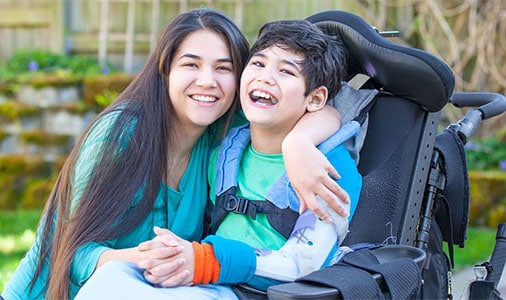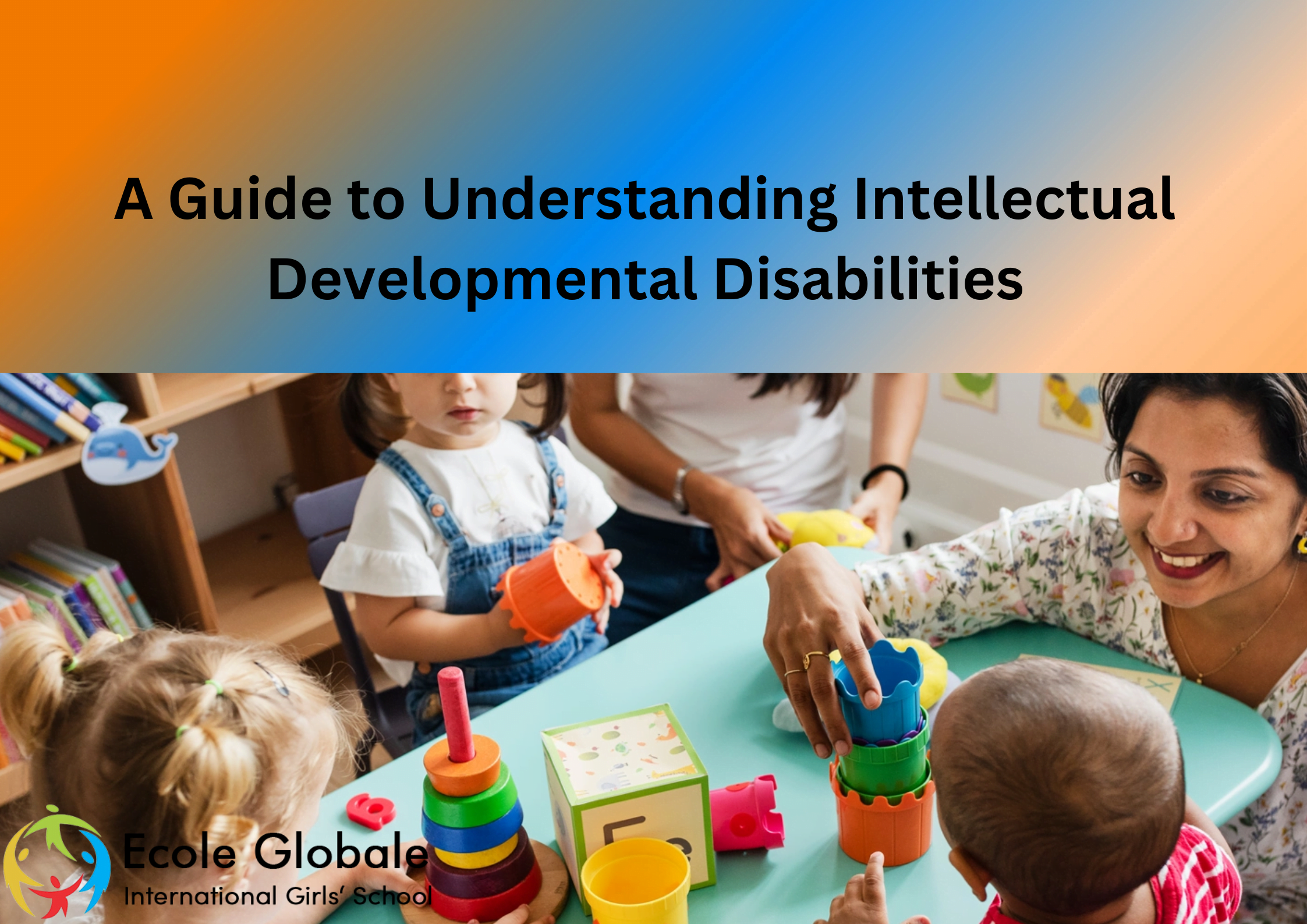Developmental disabilities are not easily understood. They can’t be observed in a clinical setting, making it difficult to understand their impact. Because of this, individuals who live with developmental disabilities often feel misunderstood by society. The goal of this blog is to help those who are on the outside looking in understand developmentally disabled individuals.
As per research conducted by School in Dehradun, Developmental disabilities are conditions that occur before adulthood. Many of these conditions can cause significant limitations or adult functioning activities. Sometimes the term “intellectual disability” may describe the same group of disorders.
Developmental disabilities interfere with a person’s ability to do the following: learn new things, communicate effectively, interact with others, live independently, and work. The blog offers a definition of developmental disabilities and a few common characteristics.
Also Read : Helping Students With Learning Disabilities To Succeed
What are intellectual developmental disabilities?

Disorders known as intellectual and developmental disabilities (IDDs) are conditions that frequently manifest from birth and harm a person’s trajectory of physical, intellectual, or emotional development. Many of these ailments impact multiple organ systems or body parts.
In the United States, 7.37 million people had intellectual or developmental disabilities as of 2016. Intellectual disability is characterised by difficulties with both intellectual functioning, also known as intelligence, which includes the capacity to learn, reason, solve problems, and other skills, and adaptive behaviour, including regular social and life skills. Intellectual disability can begin at any time before a child turns 18.
“Developmental disabilities” refers to a large spectrum of disabilities, many of which are lifelong and can be either intellectually, physically, or both. Instances of intellectual impairment and other disabilities are known as “IDD” circumstances. Autism, behavioural issues, brain damage, cerebral palsy, Down syndrome, foetal alcohol syndrome, intellectual disability, and spina bifida are some developmental difficulties.
Most Common Types of Intellectual Disabilities

1. Down’s Syndrome
Down syndrome is a genetic disorder that affects physical and developmental functioning in a modest to severe manner.
An extra chromosome is present at birth in people with Down syndrome. Your body depends on having the ideal number of chromosomes, which are bundles of genes. This extra chromosome in people with Down syndrome causes several problems that impact their mental and physical health. Down syndrome is a chronic illness.
2. Fragile X Syndrome
Fragile X syndrome, a genetic disorder, results in various developmental issues, such as cognitive decline and learning impairments. Typically, this condition affects men more severely than it does women. After two years, most affected people have delayed speech and language development.
3. Fetal Alcohol Syndrome
When a pregnant woman drinks alcohol, a disease known as, foetal alcohol syndrome (FAS) can develop in the foetus (growing baby). A syndrome is a collection of symptoms that appear simultaneously resulting in sickness or abnormality. Fetal alcohol syndrome is the most severe form of foetal alcohol spectrum disease (FASDs).
FAS is a chronic illness that has no known treatment. You can avoid this condition if you don’t consume alcohol while pregnant. It’s likely that drinking alcohol while pregnant, even in modest amounts, will harm your developing foetus.
4. Prader-Willi Syndrome (PWS)
A complex genetic disorder that affects various body systems is Prader-Willi syndrome. This syndrome is marked in infancy by hypotonia, low growth, delayed development, and feeding issues. Acutely hungry from an early age, affected people eventually experience persistent overeating (hyperphagia) and obesity. Some Prader-Willi syndrome sufferers can acquire type 2 diabetes, especially those who are obese (the most common form of diabetes).
Learning impairments and mild to moderate intellectual impairment are common in people with Prader-Willi syndrome. Outbursts of rage, stubbornness and compulsive behaviours like plucking at the skin are all prevalent behavioural disorders. Sleep disorders might also happen.
5. Cerebral Palsy
A collection of conditions known as cerebral palsy affects posture, muscular tone, and movement. It is brought on by harm to the developing, immature brain, most frequently before birth.
Infancy or the preschool years are when signs and symptoms first develop. Generally speaking, cerebral palsy results in movement impairment that is accompanied by heightened reflexes, floppiness or spasticity of the limbs and trunk, peculiar posture, involuntary motions, unstable walking, or some combination of these.
What are the symptoms of developmental disabilities?
Developmental disabilities are a group of chronic conditions that affect a person’s ability to learn, reason and adapt to their surroundings. These conditions are often grouped because they share similar characteristics.
Children with developmental disabilities may have:
- delays in physical development (for example, they may not sit up or walk until later than other children their age)
- delays in speech and language development (for example, they may not say words by age 2)
- difficulty learning new skills (for example, dressing or brushing their teeth)
- poor coordination and balance
- difficulty with social interactions (for example, not being able to make friends)
How do developmental disabilities affect daily life and relationships?
Developmental disabilities can affect daily life and relationships in several ways. There are a variety of developmental disabilities, and each one affects people differently. The most common types of developmental disabilities are autism and intellectual disability (formerly called mental retardation). These two developmental disabilities affect a person’s ability to communicate, socialise with others, and engage in daily activities.
Autism is a neurological disorder characterised by impaired social interaction, difficulties with verbal and nonverbal communication, and repetitive behaviours. People with autism may also have unusual sensory experiences or sensitivity to specific sounds or textures.
There are several types of intellectual disability: mild, moderate, severe, and profound. People with intellectual disabilities often require assistance with daily tasks due to poor communication skills or low intelligence. They may also have trouble getting along with others because they can’t follow rules or understand social cues such as facial expressions or body language.
Developmental disabilities can make it hard for people with them to function independently in society without help from their caregivers or family members. It’s essential for families who have loved ones with these conditions to take care of themselves so they can provide the best care possible for their loved ones.
Conclusion
People with intellectual and developmental disabilities deserve equality and respect.
We all have the right to equality. We have the right to be respected and treated with dignity and fairness. We can play our part in fostering a world where people with disabilities can reach their full potential, contribute to society, and enjoy the same rights and opportunities as everyone else. It all starts with each of us doing our best to include everyone in our communities. And that’s in all of us!
A critical part of this is that you learn to accept the differences of others. You then accept yourself, with your weaknesses and strengths.
For any queries related to parenting, schooling, or any student-related tips, click here to check out our latest blogs









